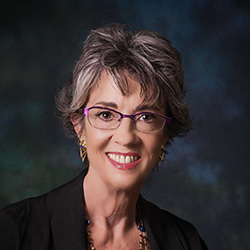By Robyn Stone
State and local public health departments seeking to support caregivers of people living with dementia should follow the advice of a popular comedian.
I don’t know about you, but I look forward to watching the montages of university commencement speeches that evening news programs package so artfully this time of year.
Granted, some of the advice doled out during the nation’s best commencement addresses can be trite. But occasionally, a few sentences from an actor or academic hit home even for someone like me, who is decades beyond graduation age.
Such wisdom came my way a few years ago from a most unlikely source—the comedian Amy Poehler, who spoke to Harvard’s graduating class on commencement day.
“You can’t do it alone,” the star of Parks and Recreation told the new Ivy League graduates. “As you navigate through the rest of your life, be open to collaboration. Other people’s ideas are often better than your own. Find a group of people who challenge and inspire you. Spend a lot of time with them and it will change your life.”
I gave this advice to a group of public health officials who gathered in Minneapolis a few weeks ago to explore the public health opportunities and challenges of dementia caregiving. I had been asked by the conference sponsor, the BOLD Public Health Center on Dementia Caregiving (PHCOE-DC), to wrap up the two-day meeting by discussing next steps that public health officials could take to maintain dementia caregiving as a public health priority.
Recognizing that “you can’t do it alone” seemed like a good place to start.
It’s unfair and unrealistic to put the onus for addressing the challenges associated with dementia caregiving on any one entity. In my mind, there is a triad of partners that have a role to play in supporting people living with dementia and their unpaid caregivers.
Public health departments at the state and local levels are obvious partners. These entities are charged with conducting health surveillance and community assessment efforts in municipalities across the country. They’re not called to cure diseases, but to address the factors that either cause disease or exacerbate its effects. In that role, they could collect and disseminate a host of evidence-based dementia care practices to help community health workers, providers of aging services, and family caregivers do their important work.
These departments also have a unique responsibility to address service gaps in their communities, including gaps affecting vulnerable populations experiencing health disparities. Should they do this alone? Of course not. They’ll need input from providers and caregivers, who know the gaps better than anyone.
Aging services organizations have a key role to play. A range of providers—including those offering affordable housing and delivering home and community-based services, assisted living, and nursing home care—must recognize family caregivers as their most valuable partners and treat them as such. These caregivers extend the mission of providers in the community, and they deserve to be supported in return. But again, providers can’t do it alone. They must reach out to public health departments for help in providing this critical support to dementia caregivers.
Unpaid family caregivers are at the very center of the partner triad. Obviously, these caregivers play a critical role in supporting people living with dementia. To carry out this work, they need support for their family member and for themselves.
But caregivers also have a role to play in supporting the providers and health departments that support them. For example, I believe if family caregivers joined with aging services providers to advocate for increased pay, benefits, and training for direct care professionals, it would greatly enhance our ability to recruit and retain the workforce that backs up family caregivers each day. In the same way, providers and caregivers can help health departments advocate for more resources to help them carry out their work.
We’ll never succeed in meeting the challenges of dementia caregiving without everyone—health departments, providers, and caregivers—working together to share best practices, provide caregivers with the support they need, and advocate together for the resources each partner needs to do its part.
Fortunately, we are making progress, thanks to PHCOE-DC, which is funded by the Centers for Disease Control and Prevention and supported by a stakeholder advisory board that includes LeadingAge. The center’s technical assistance services are helping public health departments at the state and local level become more age friendly and prioritize dementia caregiving as a public health need. PHCOE-DC also offers myriad resources that health departments, providers, and caregivers could use as they work together to support people living with dementia.
I hope you’ll visit the PHCOE-DC website to find, in the words of Amy Poehler, ideas and groups that will challenge and inspire you. Spend some time there.
As Poehler promises, it will change lives.

Robyn I. Stone, DrPH, is senior vice president of research at LeadingAge, and co-director of the LeadingAge LTSS Center @UMass Boston. Her widely published work addresses long-term care policy and quality, chronic care for people with disabilities, the aging services workforce, affordable senior housing, and family caregiving.
